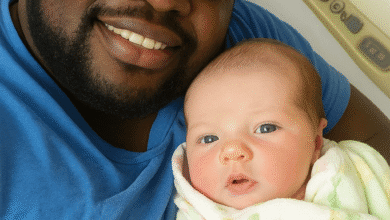THE CHIEF DOCTOR FIRED ME IN DISGRACE FOR OPERATING ON A HOMELESS WOMAN.

From the moment I stepped into an operating room, I knew I had found my calling. Becoming a surgeon wasn’t just a job — it was a vocation.
After years of grueling training, sleepless nights, and relentless pressure, I finally earned my position as a full-fledged surgeon at one of the most prestigious hospitals in the city. It was everything I had worked for. But in a single night, it all came crashing down.
It was past midnight when the ER doors flew open. Paramedics rushed in, pushing a gurney with an unconscious woman. She was pale, her breathing shallow.
— “Blunt abdominal trauma,” one of them shouted. “Possible internal bleeding. No ID, no insurance.”
I looked at her face. She was young, maybe in her early forties, with deep lines of hardship etched into her thin cheeks. She was clearly homeless.
— “ER won’t admit her,” the nurse beside me whispered.
The hospital’s policy was strict. Uninsured patients could receive basic care, but anything requiring major resources — like emergency surgery — had to be approved by administration. And at that hour, there was no one available to authorize it.
— “She won’t survive another hour,” the paramedic pressed. “She needs surgery now.”
I swallowed hard, glanced at the clock. I knew the rules. But I also knew that if I hesitated, she would die.
I made my choice.
— “Prep the OR,” I ordered.
The nurses exchanged hesitant glances, but at that moment, I was in charge. And so, we operated.
The procedure lasted nearly three hours. Her spleen had ruptured, and she had lost a dangerous amount of blood. It was a miracle she had even made it to the hospital. When I closed the final suture and her vitals stabilized, relief washed over me. I had saved her.
But that relief didn’t last.
The next morning, I barely walked through the hospital entrance when my name echoed through the intercom:
— “Dr. Harrison, report to the main conference room immediately.”
I knew what was coming.
The chief of surgery, Dr. Langford, stood at the front of the room, his face twisted in anger. The entire surgical team was gathered. Their eyes shifted uneasily between him and me. My stomach sank.
— “Dr. Harrison,” he snapped. “Do you understand what you’ve done?”
I held my ground. “I saved a life.”
His face darkened.
— “You cost this hospital thousands of dollars on a patient who won’t pay a cent! You broke protocol, jeopardized our funding, and made an executive decision that wasn’t yours to make!”
I wanted to argue. I wanted to scream that we were doctors, not businessmen. That we had taken an oath. That if we started measuring the worth of life in dollars, we’d lose the very soul of our profession.
But I wasn’t given the chance.
— “You’re fired,” he said coldly. “Effective immediately.”
Silence fell over the room. No one stood up for me. Not a single word of support. I felt my face burn with shame and anger, my fists clenched. But I refused to let them see me break. I turned around and walked out — out of the room, out of the hospital, out of the life I had built.
That night, I lay awake staring at the ceiling. I had nothing. No job. No plan. No idea what came next. But even in the midst of despair, I knew one thing: I didn’t regret saving that woman’s life.
The next morning, I received an unexpected call.
— “Dr. Harrison?” The voice on the other end was shaky. “This is Dr. Langford. I need your help.”
I nearly laughed, thinking it was some kind of cruel joke. But then he said something that made my blood run cold.
— “It’s my daughter.”
I listened as he explained, his voice trembling. His daughter, Melany, had been in a terrible accident. Internal bleeding. She needed emergency surgery. But the hospital was overloaded. All the top trauma surgeons were in procedures. And the only one with the skills and availability… was me.
— “I know I have no right to ask you this,” he choked out. “But please, Dr. Harrison. I have no one else.”
An hour later, I was back in the hospital — this time, as the only hope for the very man who had humiliated me.
Melany’s condition was critical, but my hands were steady, my mind focused. The moment I stepped into the OR, everything else disappeared. She wasn’t just Langford’s daughter — she was a patient. And my patients are always my responsibility.
The surgery was a success.
When I stepped out, Dr. Langford was waiting in the hallway. His face was pale, his eyes red.
And then he did something I never expected: he dropped to his knees.
— “Thank you,” he whispered, voice cracking. “I never should have fired you. I should have trusted you… I should’ve stood by your side. You didn’t have to do this, but you saved her life.”
For the first time, he looked at me not as a subordinate, not as a rule-breaker — but as a doctor. As an equal.
A week later, I was reinstated. Not just rehired — I was promoted. Dr. Langford made a public statement and changed hospital policy, allowing emergency surgeries for uninsured patients.
And the woman I operated on that night? She survived. She was given housing, support, and a second chance at life.
I had lost everything for doing what was right.
But in the end, doing what was right gave me everything back — and more.
That’s why I will always believe in the oath I took: to heal, to protect, to save — no matter the cost.
This story was inspired by real people and events. Names and details have been changed for privacy. If this story moved you, share it with others and leave a like — because sometimes the right thing to do isn’t easy, but it’s always worth it.





